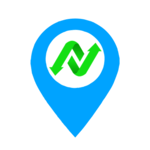Web Crawlers and Proxies For Data Collection
Web crawlers are automated programs that systematically browse and index web pages. They are also known as spiders or bots. It uses algorithms to determine the order in which websites are crawled. Other factors such as the frequency and data storage are also directed by the algorithm. Crawlers are designed to gather information about websites. The URLs, keywords, and links within a page are some examples. Web crawlers are widely used by search engines like Google to build indexes of the web. By collecting relevant information, it ensures that search engine results are accurate and useful for users.
Proxies are an essential tool for web crawling. For those engaged in large-scale data mining, proxies are crucial. The primary benefit of using proxies is that they allow web crawlers to scrape data anonymously. Many websites have anti-scraping measures in place. These are designed to prevent web crawlers from accessing their data. Proxies help circumvent these measures by providing a new IP address for each request. This process makes it difficult for websites to detect and block the crawler. Proxies also help improve the speed and efficiency of crawling. By distributing requests across multiple proxies, web crawlers can avoid overloading the target.
Proxies for Search Engine and E-commerce Scraping
Search Engine Scraping: Proxies enable scrapers to distribute requests across multiple IPs. It helps prevent search engines from detecting the activity. By using different IPs, scrapers can avoid triggering limits. Proxies also make it difficult for search engines to block scrapers based on their IP.
E-commerce scraping: Proxies help avoid anti-scraping measures. CAPTCHAs and IP bans are the common examples. With proxies, users can gather data from multiple regions and analyze the market on a global scale.
Use Cases of Web Crawlers
Search engine indexing refers to the process of analyzing and storing information about web pages. It involves the use of crawlers to create searchable indexes of the content. Web crawlers work by following links on websites and gathering data on pages. It collects page titles, descriptions, and keywords. This process are used by search engines to provide search results to users. Googlebot and Bingbot are two popular crawlers used by Google and Bing.
Competitive intelligence refers to retrieving data on competitors’ websites. Pricing and product descriptions are common examples. These information can help inform business decisions to gain a competitive advantage.
Content aggregation involves collecting content from multiple sources. Examples include news articles, blog posts, or social media posts. It can be useful for creating curated content like news summaries or social media roundups.
Market research refers to obtaining data on consumer behavior. Businesses often perform web scraping for market research. The data collected are valuable in the development of products and marketing strategies.
Website optimization means analyzing a website to identify areas for improvement. Using the best web crawlers for SEO can help improve your search ranking and performance.
Data mining refers to collecting large amounts of data from the web. The data collected helps analyze insights and trends. Web scraping proxies for data mining can help carry out this task successfully.
Types of Web Crawlers
There are several types of web crawlers. Each serves specific purpose and created to meet specific requirements. Here are some of the common types and their uses:
General-purpose web crawlers are used by search engines to discover and index webpages. This type of crawler use the robots.txt file as guide to determine which pages to crawl. It collects the metadata to understand the web content and it’s relevance to a user query.
Focused crawlers collect data from specific pages. They are used for targeted data collection or monitoring specific websites. This type of crawler are commonly used in web archiving, competitive intelligence, and academic research.
Incremental crawlers retrieve data on pages that have changed since the last time they were crawled. They help keep search engine and other databases up-to-date. It uses various techniques to detect changes like monitoring RSS feeds and other structured data sources.
Distributed web crawlers are designed to work across multiple web servers. Each server has a responsibility for crawling a subset of the web. It utilizes a network of multiple machines to crawl the web in parallel.
Deep web crawlers are designed to access content that are not easily discoverable through conventional search engines. This includes pages that are password-protected, dynamically generated, or otherwise difficult for traditional search engines to access.
Vertical crawlers are used to crawl a specific type of content. They are useful for content aggregation and data mining. They can also be used to track trends in a particular industry or monitoring brand reputation.
Get Premium Web Crawling Proxies
By masking your IP address and allowing you to make multiple requests simultaneously, proxies can make web scraping a breeze. If you’re looking for reliable and top-quality services, NewIPNow offers premium web crawling proxies that are tailored to meet your needs. Don’t let your data collection efforts be hindered by unreliable proxies, get new IP now and start scraping like a pro!
About the author

NewIPNow
Private Proxy Provider Since 2009
Imparting knowledge about proxy servers through informative blogs. Writing topics from basic definitions to advanced use cases.
NewIPNow offers premium scraping proxies
Choose your target websites and location. Get unlimited bandwidth and more features for $0.88/proxy.
